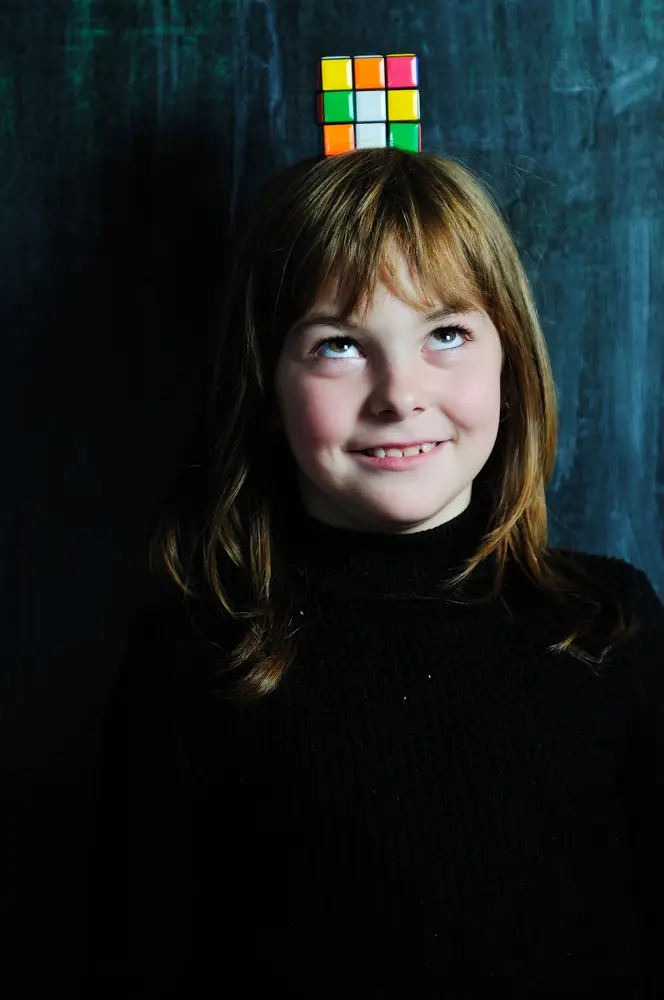When it comes to problem-solving, children can have varying approaches based on their unique personality traits.
As parents, gaining insights into how your child thinks and processes problem-solving can be invaluable in supporting their development.
Let’s take a look at how different personality types may tackle problems or puzzles:
Analytical Thinkers
Analytical thinkers are logical and methodical in their approach to problem-solving. They tend to break down problems into smaller components, analyze each part carefully, and then come up with a systematic solution. These children may prefer structured puzzles or tasks that require critical thinking.
EXAMPLE: A child who is an analytical thinker may approach a jigsaw puzzle by first sorting the pieces by color or shape, and systematically assembling it piece-by-piece until the puzzle is completed.
Creative Minds
Creative children often think outside the box when faced with a problem. They may come up with unconventional solutions and enjoy exploring different possibilities. Parents can encourage their creativity by providing open-ended puzzles or creative challenges that allow them to express their unique ideas.
EXAMPLE: A creative child, faced with the task of building a tower out of blocks, may come up with a unique design that incorporates unconventional angles and shapes, showcasing their creativity in problem-solving.
Emotionally Intelligent Individuals
Children with high emotional intelligence may approach problem-solving by considering the feelings and perspectives of others involved. They may excel in collaborative problem-solving activities where empathy and communication play a key role in finding solutions.
EXAMPLE: A child with high emotional intelligence may resolve a conflict with a peer by considering the other person’s feelings, actively listening, and finding a compromise that satisfies both parties.
Action-Oriented Problem Solvers
Some children are action-oriented problem solvers who prefer hands-on activities and learning through trial and error. These individuals may benefit from interactive puzzles or tasks that require physical manipulation to reach a solution.
EXAMPLE: An action-oriented problem solver tasked with untangling a knot may prefer to use their hands to manipulate the strands, trying different approaches until they successfully unravel the knot.
Strategic Planners
Strategic planners are forward-thinkers who excel at planning and organizing their approach to problem-solving. These children may enjoy strategy games or puzzles that challenge them to think several steps ahead and anticipate different outcomes.
EXAMPLE: A strategic planner playing a board game may carefully plan their moves in advance, anticipating their opponent’s actions and adjusting their strategy accordingly to achieve victory.

Understanding your child’s problem-solving style can help you tailor activities and support them in developing essential skills.
By recognizing and appreciating their unique approach, parents can create a conducive environment for their child to thrive and grow intellectually and emotionally.
Observing how your child approaches problems or puzzles can offer valuable insights into their personality and preferred learning style. By nurturing and encouraging their strengths, you can empower your children to become confident problem solvers who are well-equipped to tackle challenges in various aspects of life.
How do you like to approach solutions to the problems you encounter?
By noticing how you approach your solutions, and what you appreciate in the way of communication and information, will help you to communicate more efficiently with your child.
Are you the type who will read a product manual first, before assembling? Or do you skim the illustrations first? Or, do you try to figure it out yourself for the challenge it presents and only refer to the manual when you get stuck? Each of these approaches provides understanding as to why your child’s approach to problem-solving may be frustrating to you – when it isn’t the way you’d do it.
Observe your child’s approach, and give them time to figure it out their way. When they have completed successfully, praise them and be curious about why they approached it that way.
If your child is impatient and gets frustrated because they can’t figure it out, be patient, and reassure them they are figuring it out – by what doesn’t work. They will discover what works as they continue eliminating what doesn’t. Ask if they’d like a suggestion or would they like to figure it out first. Stay curious, and be respectful of your child’s learning curve. Remember – you’ve been at this for a long time!
What other suggestions would you like to share to help give ideas to others? We all learn best when we share what we’ve discovered.

